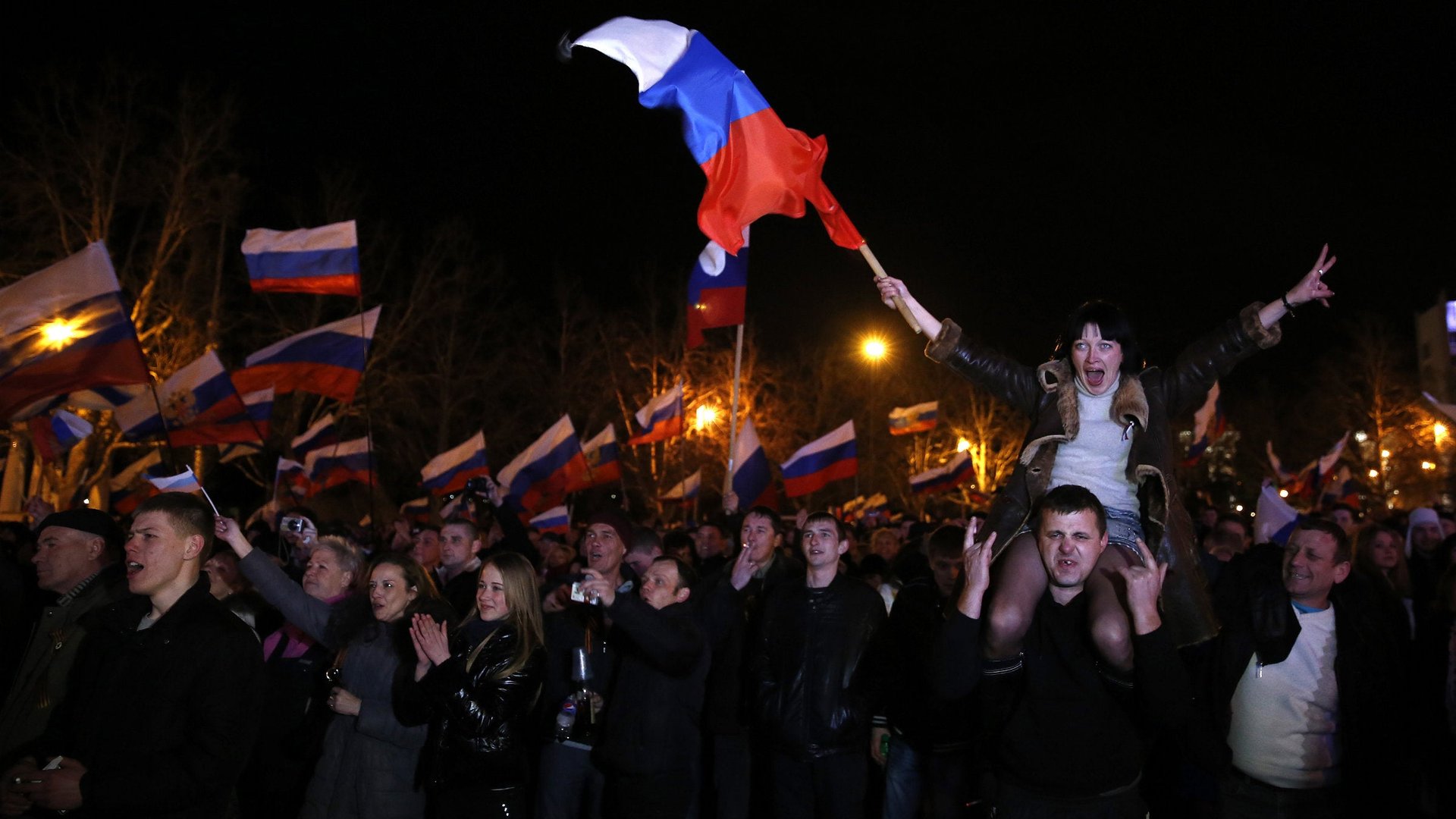For the best way to punish Putin, listen to the guy who devised the sanctions on Iran
US president Barack Obama and other Western leaders have a conundrum when they confer tomorrow (Monday) on Moscow’s all-but certain annexation of Crimea: how to punish Russian president Vladimir Putin but minimize the economic fallout on themselves?


US president Barack Obama and other Western leaders have a conundrum when they confer tomorrow (Monday) on Moscow’s all-but certain annexation of Crimea: how to punish Russian president Vladimir Putin but minimize the economic fallout on themselves?
As it happens, there is a Washington hand particularly well-positioned to solve the puzzle—the fellow who devised the West’s devilishly clever sanctions on Iran, which is eagerly at the negotiating table in an attempt to overturn them.
In 2011, Mark Dubowitz, a wiry Washington think-tank director with a decorous manner, co-wrote a white paper that described how to surgically cut off Iran oil exports while cushioning the shock to the global oil market. The Obama Administration adopted it with minimal tinkering, and today it may be the main motivation for Tehran’s presence in advanced talks that resume March 18 in Vienna.
The difference is that Russia is far more intertwined in the global financial system, particularly in Italy, Germany, and the UK. Substantial western companies are heavily exposed to Russia, including ExxonMobil, Boeing, France’s Societe Generale, and Germany’s Siemens.
But Dubowitz tells Quartz that there is a way. He supports the sanctions roadmap under general discussion—a few punishments beginning tomorrow, including a freeze on travel and assets for targeted Russians, and gradual escalation if Putin attacks eastern Ukraine as seems likely.
As a next step, Dubowitz suggests sanctioning a single Russian bank, thus cutting it off from cross-border transactions, a crippling blow to most financial institutions. Dubowitz suggests starting with a bank not substantially integrated with the global economy so as not to harm Western business interests. “This is the ‘kill the chicken to scare the monkeys’ theory of financial sanctions,” Dubowitz says.
Meanwhile, the US Congress ought to provide bipartisan, overwhelming passage of a sanctions package covering financial, energy, insurance, shipping, and mining transactions, similar to a 2010 bill approved against Iran known as CISADA. US officials used CISADA to persuade foreign banks to stop transactions with Iranian banks, and they could do the same with Russian institutions and individuals “designated for illicit activity.”
“The mere threat of these sanctions could be impactful enough that the administration wouldn’t need to go beyond a small number of actual sanctions,” Dubowitz said.
Dubowitz says the US should act regardless of its concerns about Russian support for Iran and Syrian negotiations. He cited reports that Russia has been negotiating an $18 billion oil-for-goods deal with Iran that may violate the sanctions regime.
“President Obama should not further tie his hands over either crisis by continuing to put his faith in the reasonableness of Vladimir Putin,” he said. “The administration needs a program of measured and targeted sanctions, carefully calibrated to induce a Russian change in behavior on both Crimea and Iran.”